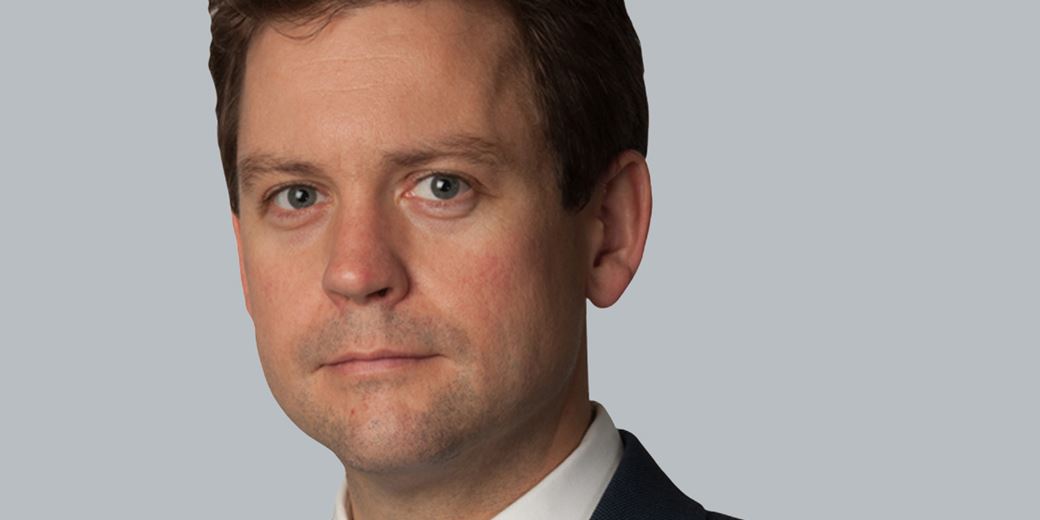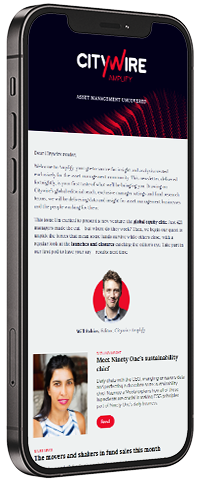There might be light at the end of the tunnel, but it ain’t here yet.
PM Alpha: We’re what the wealth market wants

Latest Newsletter
Value stance rewards managers with first AAA rating
The year comes to a close with a host of managers gaining their AAA wings.
Real Life: A cheaper, smarter way to fly business to the US
Companies are clamping down on travel costs. Here’s how to travel in comfort while keeping the expenses department happy.
Community
Private Markets Alpha’s founders claim they have zero direct competition.
Set up by former Citi Private Bank and Neuberger Berman heavyweights, PM Alpha launched at the end of August. It aims to provide wealth managers with a toolkit to address some of the problems of private markets: illiquidity, high investment minimums and onerous administrative tasks.
What does PM Alpha provide?
PM Alpha is a digital platform that will launch its own strategies, each investing into two or three later-life funds. Whatever money is committed from wealth managers will be deployed towards the end of a fund’s fundraising period. This has a couple of benefits for investors. A fund will have already invested some of the capital, giving investors at least some portfolio visibility. It also shortens the lock-up period.
Client sign-ups and capital calls will all be done digitally. Wealth managers will be able to see clients’ investments in one place.
Chief executive Tom Douie told Citywire Amplify that the team’s first strategy is income generation. ‘The proposition is a dedicated digital platform which is designed to create a one-stop shop, all-in solution for the industry of wealth management,’ said Douie. ‘We have a thematic engine… that produces blended, generally shorter-life private markets strategies that are made available in a regulated fund or vehicle form that’s appropriate for the market we are addressing.’
In Douie’s parlance, the income strategy addresses the ‘income gap’ macro theme. It will feature two to three funds from the corporate lending space in Europe and the US, delivering mid-market exposure. As the market environment changes, the strategies will be adapted, offering a different mix of managers. For example, at some point in the cycle, there could be a distressed debt strategy launched as well. ‘We seek to be as open architecture and free as possible to select the assets we need,’ he said.
The precise vehicle will depend on demand. In Europe, this could be a regulated alternative investment fund manager structure domiciled in Dublin or Luxembourg, for example.
Clients will pay ongoing annual fees between 25 to 55 basis points. Of course, the underlying managers also charge their own fees. But Douie claimed the group could ‘achieve significant cost savings by the way we construct and manage relationships’.
Investments are expected to start from $100,000.
Liquidity
The platform also offers a secondary marketplace where wealth managers can sell their holdings.
It will take capital calls for wealth managers and can club them together periodically. This should make things more predictable for individual investors.
‘We offer a fully drawn version of the fund and it utilises liquid market strategies to keep the client fully invested,’ says Douie. ‘Obviously, being fully drawn changes the return profile….but we are sensitive to the fact that some clients and wealth managers don’t want to deal with any capital calls at all. So we offer a proposition built into the product that’s ultimately managed with late-stage investments.’
Competition
The race to differentiate is on. Douie said that was what they were doing by going to wealth managers instead of the end customers. After all, there are already platforms out there that offer direct access to private markets.
‘I’m supportive of that, there is a need for that, and there have been some success stories of platforms that manage to offer big-name PE investments to clients, which can only be applauded,’ Douie said. ‘But we don’t have the ambition to do D2C. We want to enable the wealth manager – we work for the wealth management industry.’
Amplify found at least 15 investment platforms focused on private markets, operating across North America, Europe and Asia.
All of them have the same mission: democratise private assets. And although Douie is correct to say there has been a focus on going direct, many of these platforms can be and are being used by wealth managers. This includes Moonfare, which has amassed €2bn in assets.
Citywire Amplify view
Selin Bucak sbucak@citywire.co.uk
We are at the start of a big wave, and without doubt there will be more platforms launching. In a way, it is similar to the robo-adviser craze from several years ago. Like that, the question should be: how many of these platforms will survive?
With so many coming to market, it will become difficult to differentiate. Most offer the same headlines: lowering of minimums, a curated portfolio of funds, a reduction in administrative burdens and of course, access to investments that were previously out of reach.
Some are focusing their efforts on wealth managers and financial advisers. Others have decided to go direct to consumers. There is some risk in going direct: reputationally, even regulatory, if consumers become unhappy with performance and start blaming the complexity of investments.
Platforms will need to walk a fine line between their promise to ‘democratise’ with the need to protect.
Citywire Amplify will cover private market platforms every fortnight. Read the first entry in the series, on Carbon Equity, here and see below for a comparison between the platforms we have covered so far.
Latest Newsletter
Amplify Issue 30: The fund groups topping the tree
We analyse which groups have had the biggest inflows and outflows in 2022, look at managers achieving their first AAA ratings, and hear from Rob Kyprianou on why regulation gets it back to front.
Amplify Issue 29: Red hot: 2022’s private market hiring spree
2022 has been a hot year for private markets, but are asset managers putting the brakes on their expansion efforts? Plus, we look at how the bear market has affected launches this year and look at how firms can better communicate their brand values.
Amplify Issue 28: Fill your ESG product gaps
We hear from fund buyers on what they’re looking for from an ESG fund, find out what Neuberger Berman is plotting in the alts world, and learn the winners of Citywire’s Gender Diversity Awards.
Community
